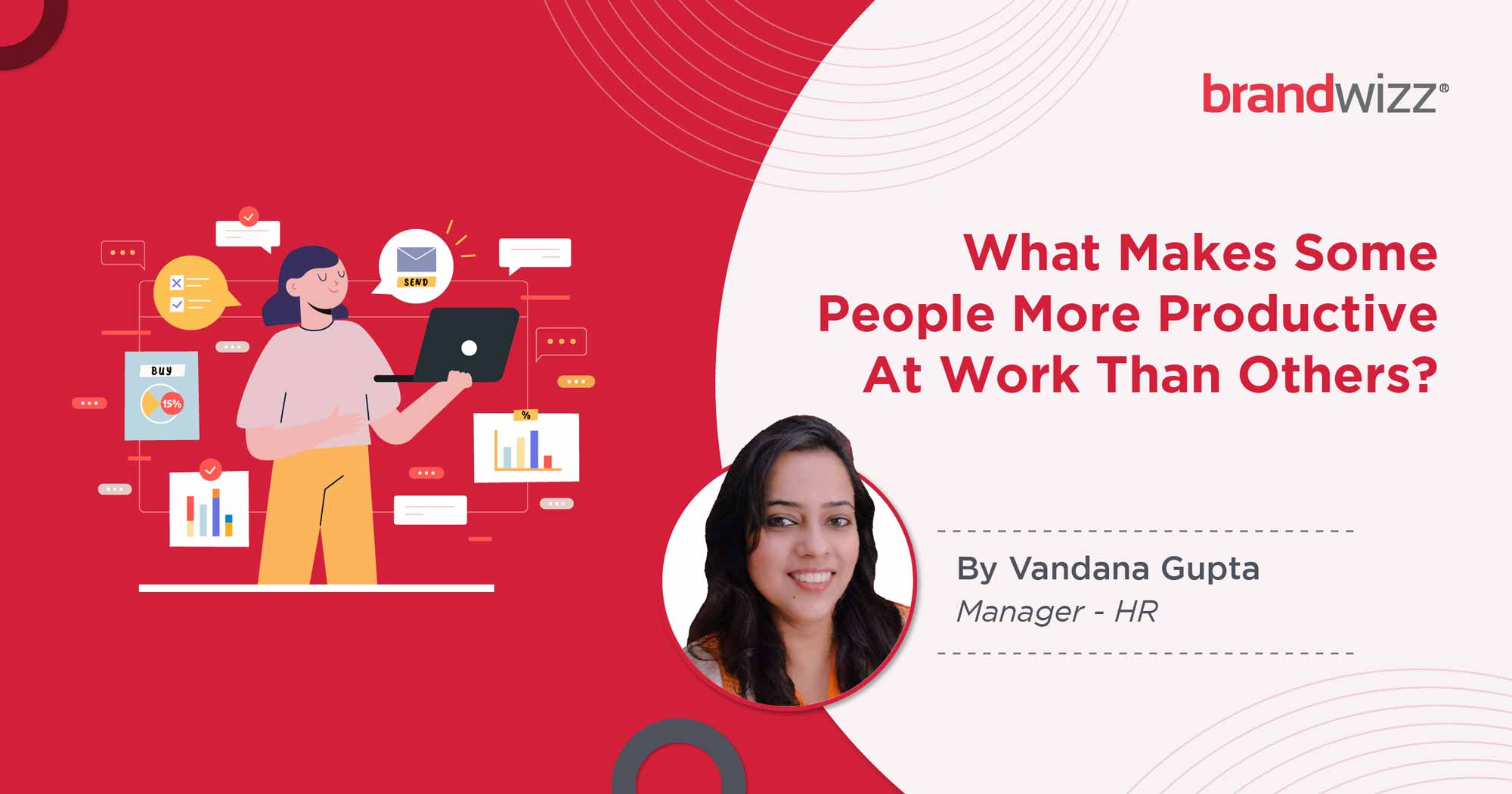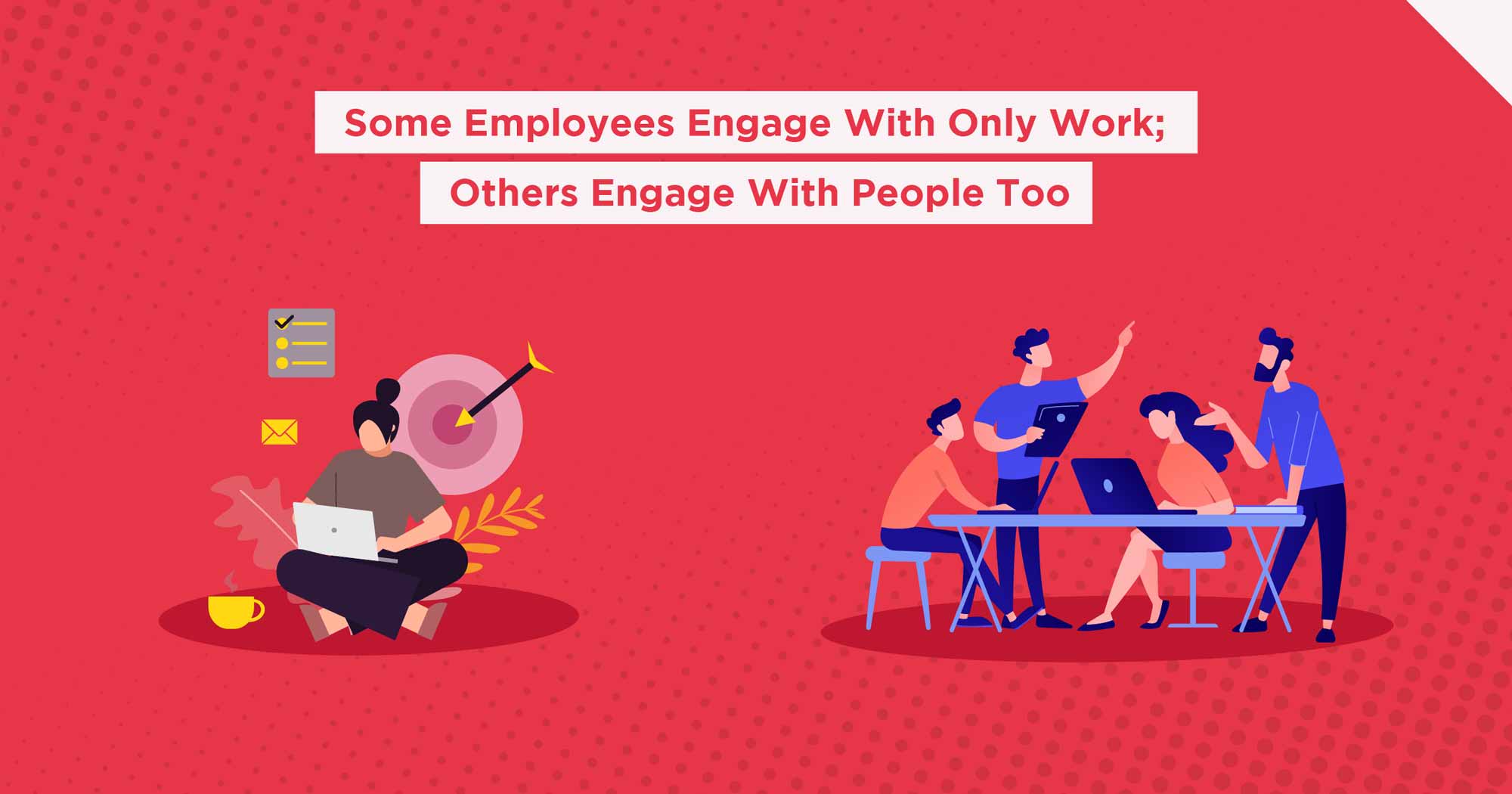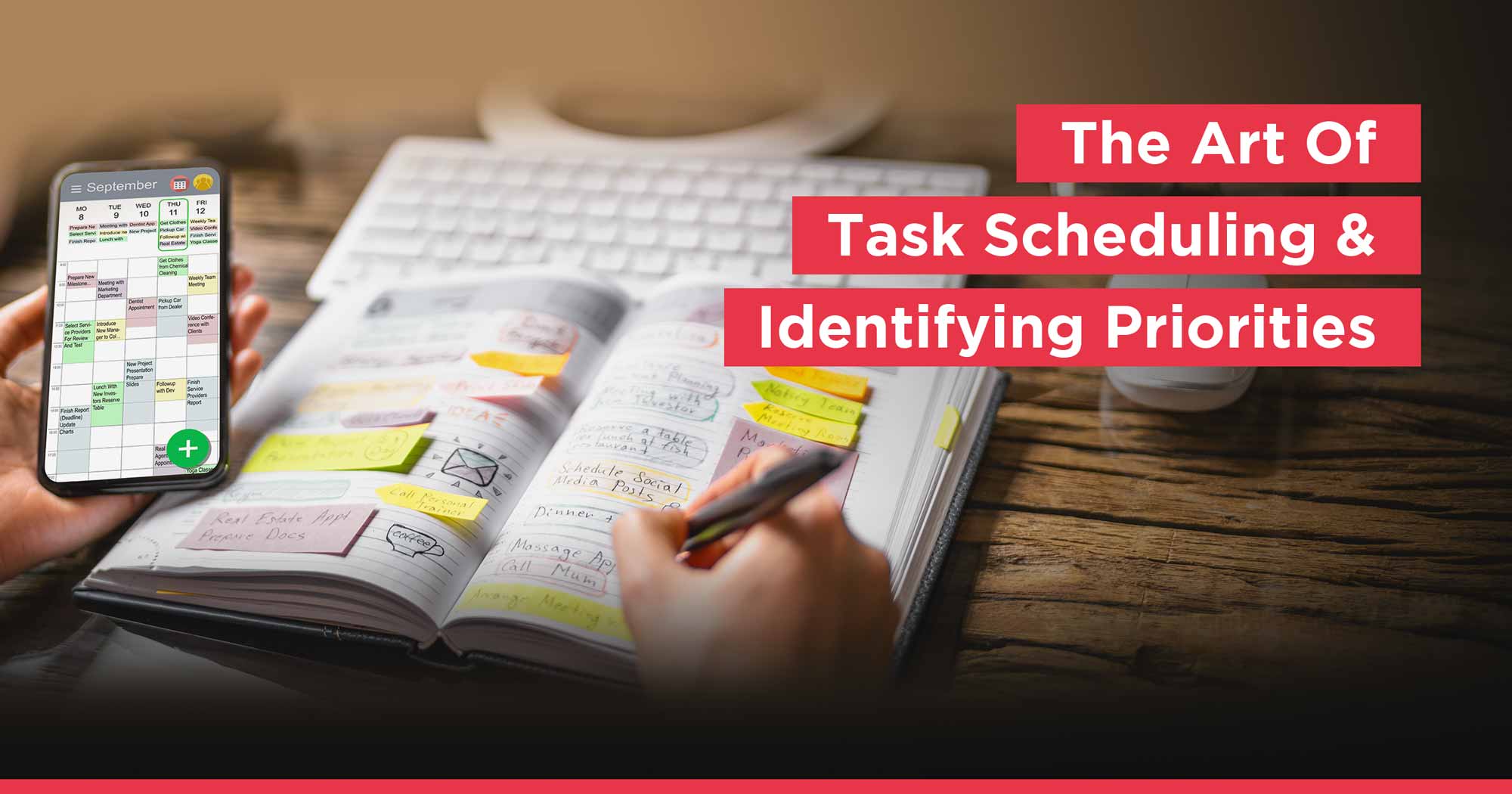What Makes Some People More Productive At Work Than Others?

“Productivity is never an accident. It is always the result of a commitment to excellence, intelligent planning, and focused effort.” – Paul J. Meyer
Human beings are not machines. Unlike the latter, people of flesh & blood cannot maintain uniformly high productivity levels right through a workday. According to a recent report, the average employee is truly productive at work for only around 3 hours in a day (with his/her productivity levels varying in different degrees during the rest of the time). While such a scenario is perfectly normal and commonplace, problems can crop up when the differences in productivity across employees become too acute.
For organisations, productive employees are hugely valuable assets. People who are more productive are, invariably, more engaged with their work – and they can pull up the profit figures of their companies by 20-25%. However, not everyone is the same, and the inherent productivity of some people is higher than the rest.
Over here, we will take a look at the main factors that make some employees more productive than others:
Some Employees Engage With Only Work; Others Engage With People Too

Proper Team Engagement at Work Also Increase Work Productivity
In the modern way of working, nothing matters more than effective teamwork. However, things are often not as easy as it sounds – with nearly 47% of employees finding the task of working in a team hugely challenging. People who prefer staying cocooned with only their deliverables often have lower productivity levels – since they do not communicate with their team-members effectively. Others, on the other hand, have mastered the art of seamless team communication, through short, to-the-point meetings, providing/receiving directions, setting & adhering to mutually agreed-upon goals, and being responsive & approachable to team-members. Being engaged with work is important – but if someone is not a good team-player, productivity levels will suffer.
The Art Of Task Scheduling & Identifying Priorities

Increase Productivity at Work Place with Proper Task Prioritizing & Scheduling
There is always a section of people who keep complaining about being ‘perpetually swamped’ with work. More often than not though, the fault lies with themselves, and their inability to be organised at work. A staggering 81% of people do not use any form of time-management systems, while not having properly scheduled tasks complicates matters further. People who are more productive generally have their daily work schedules prepared from beforehand (by themselves or their managers). This ensures that there are no uncertainties about what to work on when the workday starts (employees with poor productivity are, more often than not, ‘slow starters’). It is important to jot down everyday tasks in advance, set priorities, and work systematically.
Some People Like Multitasking; It Is Not A Great Option
Urgent work can come in, there can be very strict deadlines, and in such times, people certainly need to multitask. However, in general too, some employees prefer to flit from one task to another (without any actual need for doing so). Such multitasking causes more harm than good – with the repeated work-switches causing additional stresses to the brain, hampering productivity levels. A recent report has confirmed that such unnecessary multitasking can diminish average employee productivity by upto 40%. People who are more productive & efficient generally follow the 1-3-5 rule – completing the most difficult tasks first everyday, followed by tasks of medium difficulty, and leaving the easiest/most mechanical tasks for the last half of the day. Trying to handle everything at once makes a person ‘busy’ – but ‘busy’ and ‘productive’ are not synonymous.
Must Read- How To Maintain A Proper Work-Life Balance?
Refocusing On Work After Distractions Is Tough; Not Everyone Manages To Do It Well
Some people have that all-important ability to shut down all the ‘white noise’ happening around them while working. Having such ‘tunnel vision’ while working invariably bolsters productivity levels. Distractions and interruptions are often unavoidable – and what’s important is how an employee handles them and keeps his/her concentration going. A University of California study revealed that people at work get interrupted – on average – once every 3 minutes or so. More interestingly, it takes nearly 25 minutes to refocus on work after a distraction. The best way out is to make a conscious effort to keep distractions at an arm’s length as much as possible. Cracking a joke with co-workers, discussing last night’s match scores, or exchanging vacation ideas are all very fine – but they should not encroach into the core working hours.
Calls Of The Mobile; Some Respond To Them More Frequently Than Others
Ignoring those repeated notifications on the phone during the working hours is not everyone’s cup of tea. The more productive employees typically do not check their social media feeds after every few minutes, and do not bother to check the promotional or other unimportant personal emails coming in. Being too engaged on instant messaging apps (WhatsApp, Telegram, etc.) is also a prime cause of diminished productivity. The more a person is able to control the urge ro check his/her mobile frequently, the better his/her productivity should be.
The True Meaning Of Productivity Is Not Clear To Everyone
There are certain people who take a lot of pride in staying till late at their workplaces. For them, longer working hours is equivalent to higher productivity – and they have a tendency to look down on colleagues who generally leave office on time. This is where the difference between ‘hard work’ and ‘smart work’ kicks in. People who are punctual about arriving AND leaving work are more adept at planning their days properly, setting priorities, and managing deliverables. They generally set aside some time for unplanned/emergency work that might come in. Working overtime practically everyday is a sureshot indication that the concerned person(s) is not being able to manage his/her workload properly (or is just making a poor effort to impress the bosses). At the end of the day, performance matters – not the number of hours logged.
With More Work Comes More Responsibilities; Some People Procrastinate More than Others
There are two ways of reacting to apparently challenging tasks that might come in. Those with comparatively poor productivity levels tend to get overwhelmed by the magnitude of the task, and the responsibility (s)he needs to take. That, in turn, leads to extended periods of procrastination (among salaried employees, 80% people procrastinate for at least one hour every day) – and further drops in productivity. The more positive (and productive) way of working is to divide the overall project into shorter/simpler tasks, systematically completing them, and planning a small treat (15 minutes on social media, for example!) once a milestone is complete. A person can either THINK of the vastness of the work, or (s)he can START WORKING from the word go. The latter is, of course, the more productive resource.
Productivity Is Not Only About What One Does At The Workplace
The general lifestyle of a person outside of office hours reflects on his/her productivity at work. For instance, people with irregular sleep patterns/inadequate sleep have a lingering fatigue – leading to poor concentration levels, drowsiness and decreased productivity. The annual cost of such excess fatigue of a single employee is close to $1969 for the underlying organisation. Similarly, people with proper nutrition habits tend to perform better (by upto 25%) – while those who exercise regularly enjoy higher productivity too. After all, productivity is a way of life – people who are more organized in their personal lives excel in their professional lives too.
The best organisations encourage their talents to hold on to their individuality at work (and not just turn into a herd of sheep!). However, fluctuating productivity levels are definitely a point of concern, with 8 out of 10 employee managers being worried about this. In this context, it is important to highlight that excessive stress is a ‘productivity-killer’ – with nearly half of the total workforce, on average, losing upto 5 hours everyday as a result of stress. To maintain the desired productivity levels, employees and their managers have to work hand-in-hand. While the former need to understand where they are falling short, and pull up their socks accordingly, the latter have to appreciate & respect the differences between Person A and Person B, and devise positive reinforcements to boost the productivity levels of everyone.
Irrespective of how sincere a person is, (s)he cannot be equally productive across the 8 hours of a working day. The key lies in understanding priorities, being a good task organiser, and making those ‘more productive hours’ really matter!

Vandana is a Human Resources Manager at Brandwizz. She Heads Talent Management at Brandwizz. Apart from work, she loves reading and listening to music.




